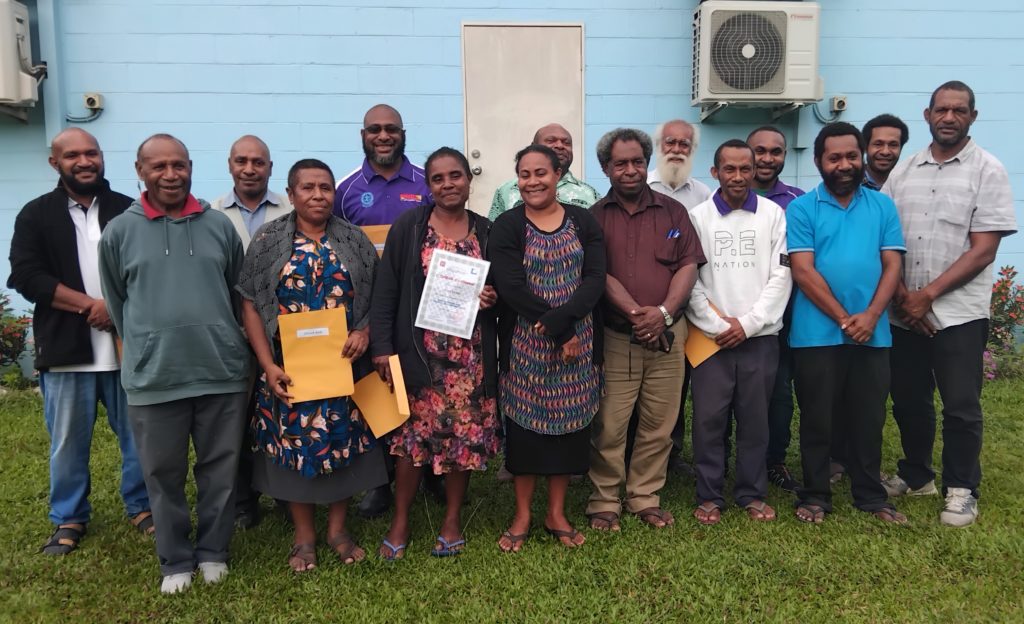SCDS Conducts Short-Course Training for ELC (PNG) Management Staff
Story Supplied-
The School of Communication and Development Studies (SCDS) has recently fascinated a church partnership short-course training on basic learning and management skills at Ampo in Lae.

Headquarter– Picture Supplied
The SCDS recently signed a partnership agreement with the Evangelical Lutheran Church (ELC) to conduct this community training through its community service obligations.
Head of School (HoS), Dr Aisoli-Orake, said that in May she signed an MOU with the Church Partnership Programme Co-ordinator, Ms Carol Sase to run a short training course for the management staff of ELC (PNG) who are based at the Church’s headquarters.
“The School’s acceptance was on the basis of its Community Service obligation under the University’s academic portfolio of Community Outreach Activities, and is consistent with the Strategic Domain 7 of its Strategic Plan 2020-2024.”
“Also, through such community-based training, the university is seen actively reaching out to our communities and people imparting knowledge and skills in whatever activities they are engaged in,” she explained.
Facilitators Mr. George Wrondimi and John Milba expressed satisfaction upon completion of the two days training for the administrative staff at the church’s headquarters.
“The training material covered four main areas; Project Planning and Proposal Writing, Formulation of Implementation Plans (including Annual Operational Plans), General Management Skills, and
Standards and Compliance,” explained Mr Wrondimi. He said that a general management skill was included since implementation is one of the functions of management, and hence the managers must have some basic knowledge and skills on their managerial roles and responsibilities in the current positions which they occupy. It was noted there was a clear gap or missing link between project planning and project implementation, he said.
“Both the planners, and implementers (who happen to be the managers) must collaborate and understand what goes into the plan, and how it will come out at the implementation end. They must speak the same language from project identification or needs analysis to achieving the anticipated outcomes or outputs upon completion of the implementation process,” said Mr. Wrondimi.
Mr. Milba was also full of praise for the short-course and suggested for follow-up actions and said “a more intensive training is recommended for mangers to focus on practical exercises to fill in the various project proposals or applications forms.”
The HoS, Dr Aisoli-Orake, thanked the facilitators and the ELC (PNG)Partners for making this possible and said the school is looking forward to similar programs with the communities in the future.
